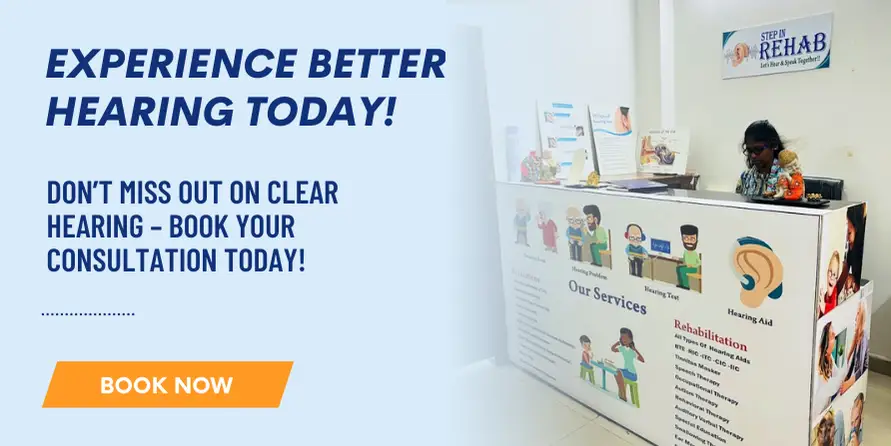Frequently Asked Questions (FAQs)
About Our Speech Therapy & Hearing aids Services
At Step In Rehab, we understand that you may have questions about our speech therapy and hearing aid services. Below are some of the most frequently asked questions to help you understand what to expect. If you have more questions, don’t hesitate to reach out to us!
Hearing aids are small electronic devices worn in or behind the ear to amplify sound for people with hearing loss. They consist of a microphone, amplifier, and speaker to improve hearing.
Hearing aids are typically recommended for individuals with sensorineural hearing loss, which is common in older adults but can affect people of all ages. A hearing test by an audiologist can determine if a hearing aid is appropriate.
Behind-the-Ear (BTE): Rest behind the ear with a tube that delivers sound to an ear mold.
In-the-Ear (ITE): Fills the outer ear and is less visible.
In-the-Canal (ITC): Fits partly in the ear canal.
Completely-in-the-Canal (CIC): Almost invisible, fitting entirely in the ear canal.h
Receiver-in-Canal (RIC): Similar to BTE but with a receiver that sits in the ear canal.
It is generally recommended to remove hearing aids while sleeping to prevent damage and to give your ears a break. If you have questions about wearing them overnight, consult your audiologist.
Speech therapy is a treatment process designed to help individuals improve their communication skills. This can include issues with speech, language, voice, and fluency, as well as cognitive-communication skills. Speech therapists work with people of all ages to address these challenges.
The duration of speech therapy varies depending on the individual’s needs and goals. Some people may see improvements within a few weeks, while others may require months or even longer. Consistency and engagement in therapy are key factors in achieving progress.
No, speech therapy is for individuals of all ages. While it is commonly associated with children, adults can also benefit from speech therapy for various communication and swallowing issues.
Signs that speech therapy might be needed include:
For Children: Difficulty pronouncing words, limited vocabulary, trouble understanding or following directions, and difficulty forming sentences.
For Adults: Trouble speaking clearly, difficulty finding the right words, changes in voice quality, or problems with memory and cognitive functions.
A speech-language pathologist (SLP) can perform an assessment to determine if therapy is appropriate.


